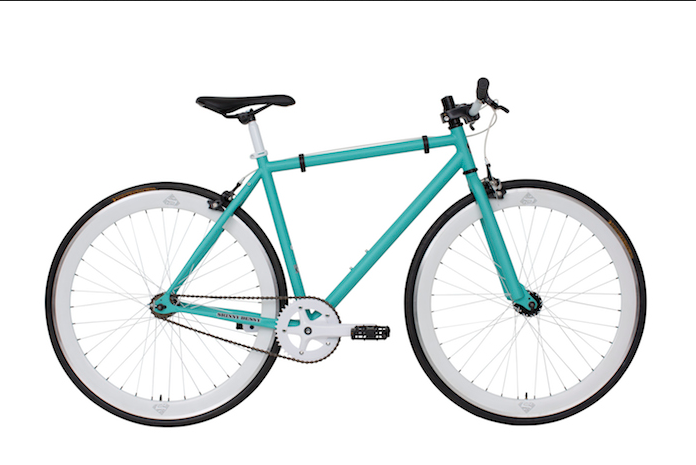 Follow Any of These Rules To See Improvement in Your Ride!
Follow Any of These Rules To See Improvement in Your Ride!
Stay On The Lookout For the Rest of The Rules!
1. Train Your Weaknesses
Even though this may seem vague and obvious, this is much more about identifying your weaknesses and THEN training them. Professional endurance racer Mark Weir makes his living blasting through corners, but that wasn't always the case. "I was a semi-pro downhiller racing in Park City, Utah, and there was a corner that I thought just sucked," he recalls. "I told Jan Karpiel, one of my sponsors, about it, and he said: 'The corner doesn't suck, you suck at that corner.' I realized then that training my weaknesses is far more important than sticking with my strengths.

2. Check Your Tire Pressure Before Each Ride
3. Learn to Bunny Hop on Your Road Bike
Doing an unclipped hop shows you how changes in body position affect your bike's behavior — knowledge that will boost your confidence on steep downhills, rough roads, and in corners.
A. Replace your clipless pedals with platforms and your cycling shoes with soft-soled sneakers.
B. Ride across a flat, grassy field at slightly faster than walking speed, standing on your pedals, cranks level with the ground, elbows and knees slightly bent.
C. Push down on the handlebar while bending your knees even farther so you are crouched over the saddle. Then immediately pull up and back on your bar as you shift your weight back to get the front tire up.
D. With the front tire off the ground, shift your weight forward as you push the handlebar ahead and hop up with your legs to lift the rear wheel.
4. Fitness Takes Time
No crash diet or hell week of training will magically propel you into top form. "You've got to work toward it all season long," says Pierre Rolland, the best young rider of the 2011 Tour de France.
5. If something is painful like your knee, back, or wrists, you should consider getting a professional fitting.
Many websites and blogs offer instructions to "do-it-yourself," however —it's a much better idea to let a professional fine tune your bike toyour anatomy.
6. Wash Your Bike
Especially after a wet or muddy ride. Mist it with a garden hose or soak it using a bucket of soapy water. Wipe it down and rinse, then dry it with a clean rag or towel. Don't forget to lube your chain.
7. Buy a Torque Wrench and Learn How to Use It
This is mandatory for carbon parts, but will also extend the life of all stems, handlebars, bottom brackets, seatpost clamps, and suspension pivots.
8. Speaking of Your Chain
A well-maintained and lubricated chain could last 3,000 road miles ore more, but check it every 500. Here's how: Take a ruler and place the 0 at the rivet of one link. If the ruler's 12 inch mark aligns closely with another rivet, you're in good shape. If it's more that 1/16th of an inch away, replace the chain.

9. Respect Your Front Brake
Applying 60 percent front brake will bring you to a smooth, controlled stop. But on steep descents or during rapid decelerations, you'll want to rely even more heavily on the front.
Be sure to shift your weight behind your saddle to prevent yourself from sailing over the handlebar
10. Stick With Your Group
Whether you're embarking on a 500-mile charity ride or racing Paris-Nice, there's safety in numbers. Teammates and friends can pull if you're feeling tired, share their food, or help fix a mechanical issue. "I've seen this so many times," says Chris Horner. "A guy is leading the race and is really strong and so he goes into a breakaway. But what happens if he crashes or flats? He is all alone. Stay with your group as long as possible.
Stay tuned for more GREAT tips, video reviews and much much more!
Bumstead's Bicycles
Located at 1038 W. 4th St. in Ontario, CA.
You can reach us by phone at (909) 984-9067
You can reach us by phone at (909) 984-9067







